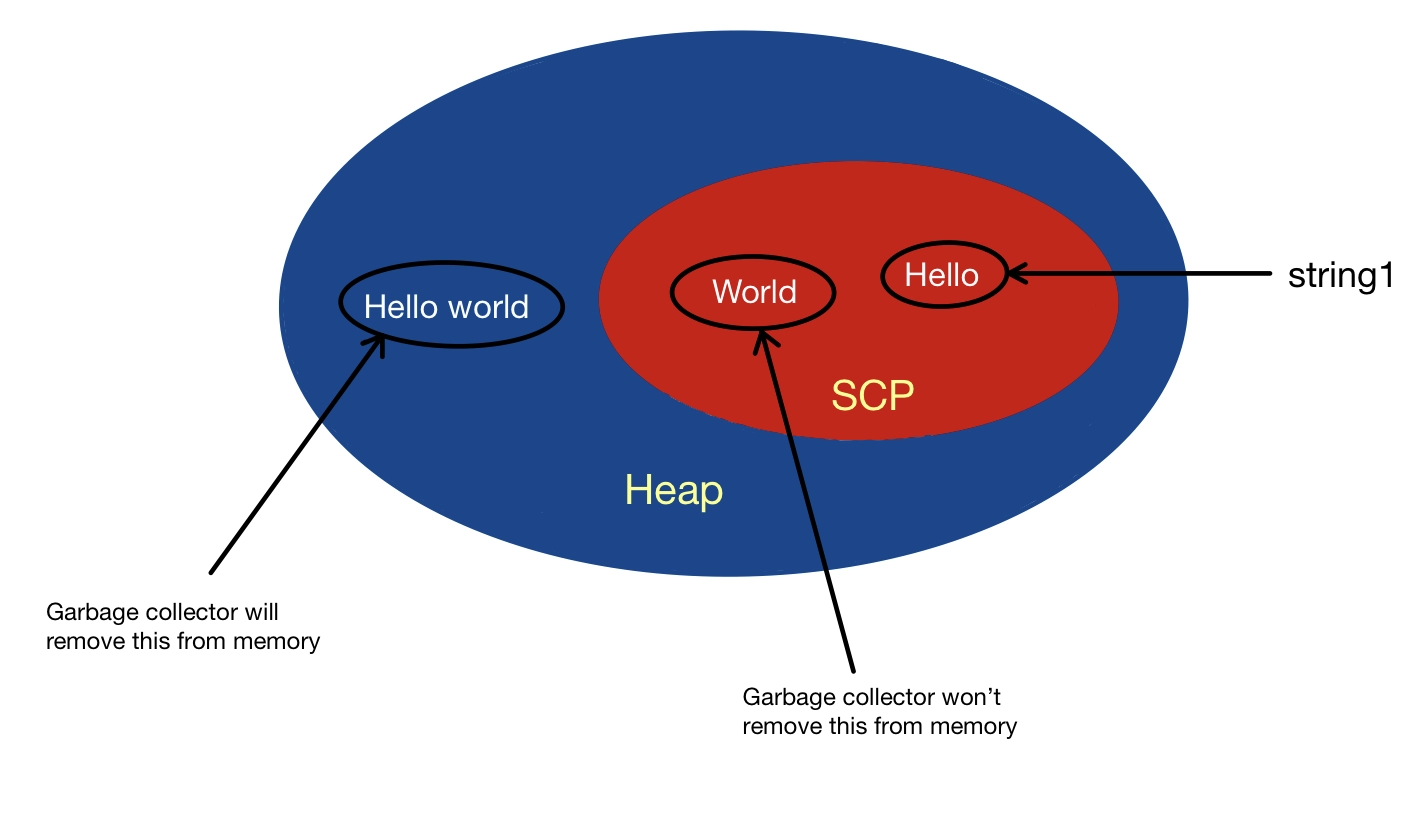Why Are Strings Immutable in Java? Insights right into Memory Effectiveness
Why Are Strings Immutable in Java? Insights right into Memory Effectiveness
Blog Article
Discovering the Benefits of Immutable Strings in Modern Shows Paradigms
In the realm of modern-day programming standards, the idea of unalterable strings stands as a cornerstone of robust software development. By adopting immutable strings, designers can guarantee enhanced information honesty, improved thread security, simplified debugging processes, enhanced safety and security steps, and reliable efficiency optimization.
Boosted Data Honesty

By protecting against the alteration of string objects, immutability gets rid of the risk of unintentional modifications to the data they hold. This not only enhances the protection of the info yet likewise enhances the integrity of the code that counts on these strings.
Immutability also sustains much safer multithreading environments, as concurrent access to immutable strings does not posture the danger of information corruption via synchronised alterations. This property simplifies the process of managing strings in identical programs scenarios.
In significance, immutability serves as a protective shield around the information saved within strings, improving their integrity by making sure that when defined, their worths continue to be unmodified throughout the program's implementation.

Improved String Security
Unalterable strings boost the thread security of programs by guaranteeing that once a string item is created, its value can not be customized. This residential or commercial property gets rid of the threat of concurrent strings attempting to customize the same string concurrently, which could cause data corruption or inconsistent states in the program - Why are strings immutable in Java?. In a multi-threaded environment, where numerous threads gain access to and adjust data concurrently, the immutability of strings gives a level of safety and security by assuring that the information stays unmodified throughout its lifecycle
Streamlined Debugging Processes
Provided the improved thread safety and security facilitated by immutable strings, a considerable advantage occurs in the world of streamlined debugging procedures. Immutable strings, once produced, can not be changed, making it easier to map the flow of information and determine the source of bugs in a program. This immutability makes sure that strings stay regular throughout the implementation of the program, decreasing the likelihood of unexpected changes that could bring about errors.
When debugging with mutable strings, developers often encounter issues where a string's value is changed accidentally, making it challenging to determine the source of a pest. Nonetheless, with unalterable strings, the information remains the same, enabling programmers to concentrate on examining the actual reasoning of the code instead than finding where and when a string was customized improperly.
Furthermore, unalterable strings streamline the debugging procedure by allowing easier recreation of insects. Since immutable strings do not transform state, developers can recreate and study pests extra effectively, bring about quicker identification and resolution of issues within the codebase. This streamlined debugging operations eventually adds to greater software high quality and boosted general growth effectiveness.

Enhanced Protection Actions
Enhancing data security and fortifying system stability, the application of immutable strings in software applications contributes substantially to enhanced safety procedures. Unalterable strings also play an essential function in stopping common protection vulnerabilities such as barrier overflows and SQL injection strikes, as attempts to control string data at runtime are inherently restricted.
Additionally, the immutability of strings improves the predictability of program actions, making it less complicated to validate inputs and prevent unexpected adjustments that could jeopardize security. This predictability streamlines the procedure of bookkeeping official statement and validating code, making it possible for developers to identify potential safety and security loopholes better. Generally, incorporating unalterable strings into software program advancement methods not just improves the toughness and integrity of applications however likewise strengthens their strength versus protection risks.
Reliable Efficiency Optimization
Structure upon the structure of boosted safety actions accomplished through the utilization of immutable strings, a key facet to consider in software application growth is effective efficiency optimization. When dealing with mutable strings, operations like concatenation or substring production typically cause the development of new string things, leading to memory expenses and boosted processing time. Nonetheless, with immutable strings, these operations can be optimized to improve efficiency. By permitting strings to remain consistent and unchangeable, unalterable strings assist in far better memory management and caching opportunities, ultimately improving the total efficiency of the software application.
Immutable strings likewise play an important role in multithreaded settings by advertising thread safety. Why are strings immutable in Java?. Considering that unalterable strings can not be modified as soon as created, they can be shared throughout threads without the threat of unexpected modifications, decreasing the need for synchronization devices and improving concurrency. Moreover, unalterable strings streamline debugging processes as programmers can rely on that a string's value will certainly continue to be regular throughout the program's implementation, getting rid of potential errors created by mutable state changes. In conclusion, using unalterable strings not only improves security but likewise significantly adds to the efficient performance optimization of modern-day software systems.
Verdict
In conclusion, the benefits of using immutable strings in modern shows paradigms can not be overstated. Boosted data stability, improved thread safety and security, simplified debugging processes, enhanced safety and security procedures, and efficient performance optimization all visit here add to the overall effectiveness of shows tasks. By integrating immutable strings right into shows practices, developers can gain from an extra trustworthy and robust codebase.
Immutability, an essential feature of strings in programming languages such as Java and Python, makes certain that as soon as a string item is developed, it can not be changed or modified.Unalterable strings boost the string security of programs by guaranteeing that once a string item is produced, its worth can not be modified. Immutable strings additionally why not try here play an essential duty in stopping typical protection susceptabilities such as barrier overflows and SQL injection assaults, as attempts to adjust string data at runtime are naturally limited.
By allowing strings to stay stable and continuous, unalterable strings promote far better memory administration and caching possibilities, eventually enhancing the general effectiveness of the software program.
Immutable strings streamline debugging processes as developers can trust that a string's value will remain constant throughout the program's execution, removing prospective errors triggered by mutable state modifications.
Report this page